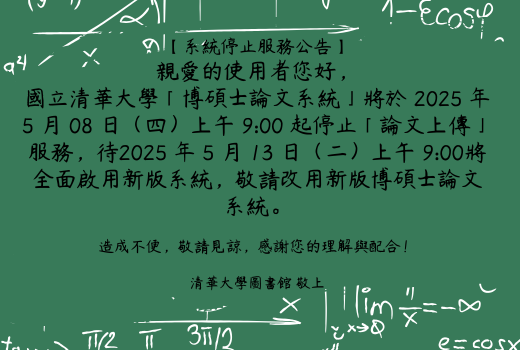|
Acemoglu, D., and Autor, D. (2011). Skills, tasks and technologies: Implications for employment and earnings. Handbook of labor economics, 4, 1043-1171.
Alichi, A., Kantenga, M.K., and Solé, M. J. (2016). Income polarization in the United States. International Monetary Fund.
Autor, D. (2010). The polarization of job opportunities in the US labor market: Implications for employment and earnings. Center for American Progress and The Hamilton Project.
Autor, D. H. (2003). Outsourcing at will: The contribution of unjust dismissal doctrine to the growth of employment outsourcing. Journal of labor economics, 21(1), 1-42.
Autor, D. H., Katz, L. F., and Krueger, A. B. (1998). Computing inequality: have computers changed the labor market? The Quarterly Journal of Economics, 113(4), 1169-1213.
Bresnahan, T. F., Brynjolfsson, E., and Hitt, L. M. (2002). Information technology, workplace organization, and the demand for skilled labor: Firm-level evidence. The Quarterly Journal of Economics, 117(1), 339-376.
Card, D. (2001). The effect of unions on wage inequality in the US labor market. Industrial and Labor Relations Review, 54(2), 296-315.
Card, D., and Lemieux, T. (2001). Can falling supply explain the rising return to college for younger men? A cohort-based analysis. The Quarterly Journal of Economics, 116(2), 705-746.
Card, D., and Lemieux, T. (2001). Going to college to avoid the draft: The unintended legacy of the Vietnam War. The American Economic Review, 91(2), 97-102.
Chiu, S. W., and Lui, T. L. (2004). Testing the global city-social polarisation thesis: Hong Kong since the 1990s. Urban Studies, 41(10), 1863-1888.
David, H., Dorn, D., and Hanson, G. H. (2013). The China syndrome: Local labor market effects of import competition in the United States. The American Economic Review, 103(6), 2121-2168.
David, H., Dorn, D., and Hanson, G. H. (2013). The geography of trade and technology shocks in the United States. The American Economic Review, 103(3), 220-225.
Drucker, J. and Bowers, S. November 6, 2017. After a Tax Crackdown, Apple Found a New Shelter for Its Profits. The New York Times
Enright, M. J., Chang, K. M., Scott, E., and Zhu, W. H. (2003). Hong Kong and the Pearl River Delta: The economic interaction. Hong Kong: The 2022 Foundation, 2003.
Farber, H. (2005). Nonunion wage rates and the threat of unionization. Industrial and Labor Relations Review, 58(3), 335-352.
Freeman, R. (1976). The overeducated American. Academic Press, New York.
Friedman, T. L. (2017). Thank you for being late: An optimist's guide to thriving in the age of accelerations. Picador USA.
Goldin, C. D., and Katz, L. F. (2009). The race between education and technology. Harvard University Press, Cambridge.
Harrison, A., and McMillan, M. (2011). Offshoring jobs? Multinationals and US manufacturing employment. Review of Economics and Statistics, 93(3), 857-875.
Hsia, R., and Chau, L. (1978). Industrialisation and income distribution in Hong Kong. International Labour Review, 117, 465.
Jonn, A. May 13, 2017. Hong Kong’s family business need to enhance governance to succeed. South Morning China Post.
Lee, K. M., To, B. H. P., and Yu, K. M. (2014). The New Paradox of Thrift. China Perspectives, 2014(1).
Lui, H. K. (2013). Widening income distribution in post-handover Hong Kong. Routledge, London and New York.
Mandelman, F., and Zlate, A. (2016). Offshoring, low-skilled immigration, and labor market polarization, Working Paper. Federal Reserve Bank of Atlanta, No. 2014-28.
Nolan, R. L., Porter, K., and Akers, C. (2001). Cisco systems architecture: ERP and web-enabled IT. Harvard Business School Publishing, Boston.
Ottaviano, G. I., Peri, G., and Wright, G. C. (2013). Immigration, offshoring, and American jobs. The American Economic Review, 103(5), 1925-1959.
Saunders, P., Wong, H., and Wong, W. P. (2014). Deprivation and poverty in Hong Kong. Social Policy and Administration, 48(5), 556-575.
Shepherd, J. (2012). Firing At Will: A Manager's Guide. Apress USA
Smart, A., and Lee, J. (2003). Financialization and the role of real estate in Hong Kong's regime of accumulation. Economic Geography, 79(2), 153-171.
Stockman, F. October 14, 2017. Becoming a Steelworker Liberated Her. Then Her Job Moved to Mexico. The New York Times.
Tao, Z., and Wong, Y. R. (2002). Hong Kong: From an industrialised city to a centre of manufacturing-related services. Urban Studies, 39(12), 2345-2358.
Thurow, L. February 5, 1984. Business Forum; the disappearance of the middle class. The New York Times.
Tinbergen, J. (1974). Substitution of Graduate by other Labour. Kyklos, 27(2), 217-226.
Tope, D., and Jacobs, D. (2009). The politics of union decline: The contingent determinants of union recognition elections and victories. American Sociological Review, 74(5), 842-864.
Ulman, L. (1998, January). The Kennedy and Johnson Guideposts. Proceedings of the Annual Meeting-Industrial Relations Research Association (Vol. 1, pp. 168-175). Industrial Relations Research Association.
Walks, R. A., Dinca-Panaitescu, M., and Symone, D. (2016). Income inequality and polarization in the city of Toronto and York region. Research Paper, (238).
Wong, Y. C. R. (2017). Fixing Inequality in Hong Kong. Hong Kong University Press, Hong Kong.
Western, B., and Rosenfeld, J. (2011). Unions, norms, and the rise in US wage inequality. American Sociological Review, 76(4), 513-537
Zhao, X., Zhang, L., and Sit, T.O.K. (2004). Income inequalities under economic restructuring in Hong Kong, Asian Survey, 44(3), 442-473.
|
